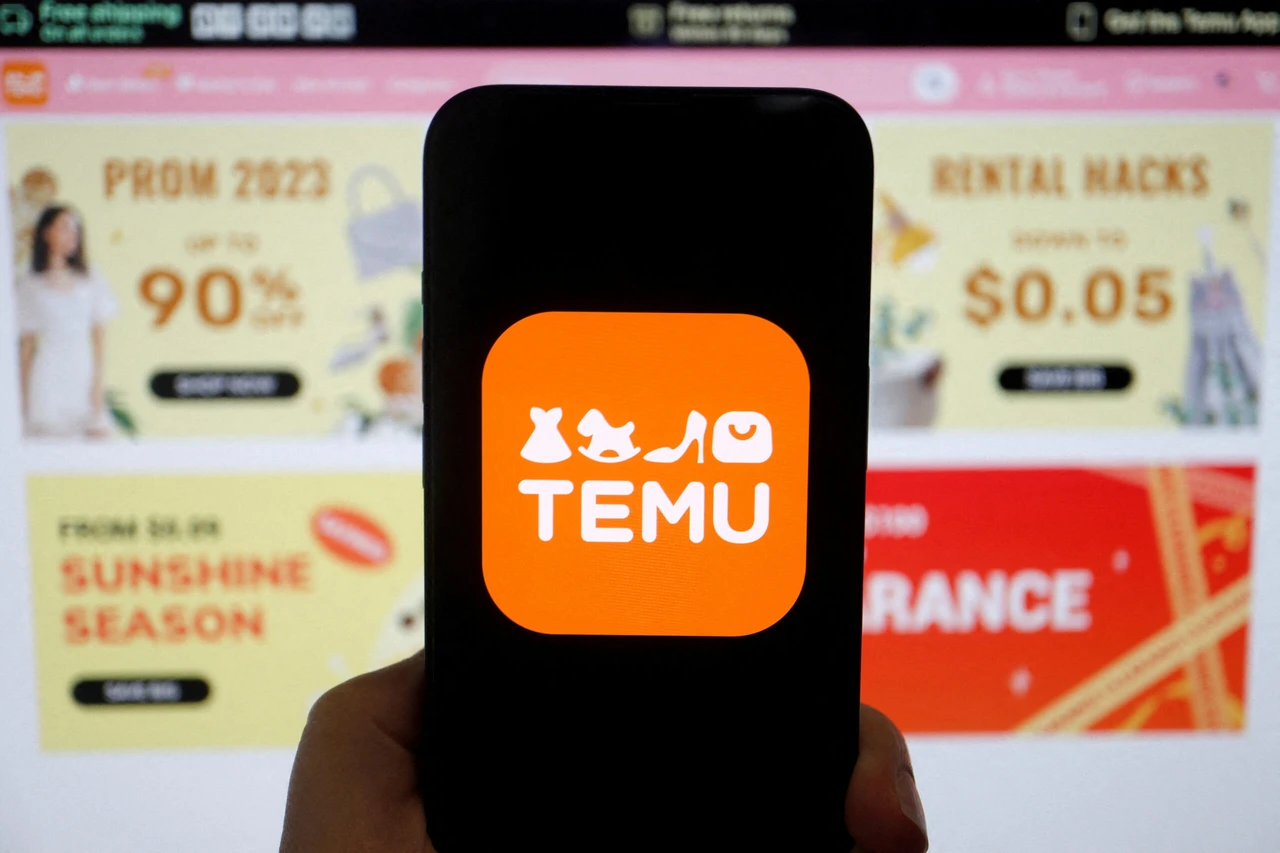Explained: Why Türkiye slashed duty-free shopping limit
 The logo of Temu, an e-commerce platform owned by PDD Holdings, is seen on a mobile phone displayed in front of its website, in this illustration picture taken April 26, 2023 (Reuters Photo)
The logo of Temu, an e-commerce platform owned by PDD Holdings, is seen on a mobile phone displayed in front of its website, in this illustration picture taken April 26, 2023 (Reuters Photo)
Turkish government’s decision to amend the implementation of certain articles of Law No. 4458 on customs has resulted in a new regulation concerning the taxation of imported goods, significantly impacting e-commerce and consumer behavior.
Behind the scenes: The Ministry of Trade’s action was prompted by the growing popularity of Temu, owned by China’s PDD Holdings, in Türkiye, following the trend set by AliExpress.
What Türkiye’s new tax regulations are about
The change in the country’s Customs Law, effective from Aug. 21, aims to curb unregulated sales and bolster the national treasury.
Duty-free limit: On Aug. 6, Türkiye implemented a new tax regulation that dramatically reduces the duty-free limit for personal shopping abroad via fast cargo or postal services from 150 euros ($167.11) to 30 euros.
Custom duties: Customs taxes have also been increased, with EU goods now subject to a 30% tax, up from 20%, and non-EU goods facing a 60% tax, doubling the previous 30%.

How are foreign companies reacting to these regulations
The changes have already prompted responses from major international companies.
- China-based online marketplace Temu slashed its minimum order amount from ₺2,000 ($58.91)to ₺670.
- U.S. sportswear giant Nike announced it would suspend online orders from Türkiye.
- Amazon has also halted sales to Türkiye due to the new customs regulations.
What’s more: The decision has sparked significant reactions on social media and from various segments of society.
Zoom in: Breakdown of customs tax increase
According to professor Murat Bati, the regulation covers a wide range of products from perfumes to electronics and impacts consumers who frequently shop online. He explained that the new rules, which exempt physical stores but tighten control over individual imports, aim to prevent tax evasion and protect local producers.
- EU goods: Products valued at 30 euros or less are now subject to a 30% customs tax, up from 20%.
- Non-EU goods: The customs tax on products from outside the EU has doubled to 60%. If the product is subject to special consumption tax (SCT), an additional 20% will be applied.
- Example: For a product with a base price of ₺100 imported from a non-EU country will now incur an additional ₺92 in taxes and fees, making the total cost nearly double its original price.
- Inclusion: The new tax applies only to individual purchases, not to corporate or bulk imports.
- Exceptions: Items bought through physical stores in Türkiye are not affected, as they are subject to different tax regimes. This differentiation aims to clamp down on informal, untaxed sales while leaving established businesses unaffected.
Behind the scenes: While the government justifies the regulation as a means to protect domestic manufacturers, Bati believes the primary goal is to generate revenue for the national treasury. He also notes that this could help reduce unregulated sales, particularly on platforms like Instagram, where non-compliant transactions are widespread.
What is impact on e-commerce
According to a May 2023 report by the Ministry of Commerce, domestic spending accounted for 93.37% of Türkiye’s e-commerce, while Turkish citizens’ purchases from abroad made up 3.75%.
The report highlighted that retail e-commerce grew by 52.74% in real terms, underlining the significant role of cross-border shopping in Türkiye’s e-commerce landscape.



